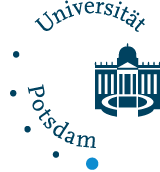Workshops
Workshop I (Tuesday, 2 April 12:00-14:00):
The latest developments and application of Single Particle ICP-MS and Single Cell ICP-MS
Michael Petrich (PerkinElmer LAS GmbH)
This short course will cover both the fundamentals of nanoparticle detection with Single Particle (SP) ICP-MS and the metal content of individual cells via Single Cell (SC) ICP-MS.
SP-ICP-MS has become regularly used in metallic NP detection and quantification. The theory of SP-ICP-MS will be reviewed, focusing on the state-of-the-art innovations in hardware and software including dual analyte analysis.
SC-ICP-MS allows for the quantification of nutrient metals as well as the uptake of metals and metal NPs into cells. We will introduce the concept of single cell-ICP-MS and discuss the encounters faced when analyzing cells compared to NPs with an in-depth focus on the necessary validation required to accurately quantify the number of particles and/or metal content in individual unicellular organism. The use of dual analysis of metals with SC-ICP-MS within cells will also be discussed.
Workshop II (Wednesday, 3 April 8:00-9:00):
Fundamentals of ICP-MS and ICP-MS/MS compared to other atomic spectroscopy techniques (and why it is particularly well suited for speciation and other hyphenated applications)
Jörg Hansmann (Agilent Technologies Sales & Services GmbH & Co. KG)
ICP-MS techniques are particularly well suited for trace element quantification in very different sample types with particularly good detection limits. The excitation source ICP ionizes most elements of the periodic table very effectively and independent of the binding form in the sample. This allows speciation by coupling with separation techniques such as HPLC or FFF. Even the measurement of complete particles or single cells is possible.
As almost always there are also limitations and the workshop should name besides the possibilities of ICP-MS and ICP-MS/MS also different potential influences like ionization effects and spectral interferences. Application examples will of course cover typical elements and sample types of the participants. In addition to metals, non-metals such as phosphorus and sulphur will also be addressed. Enough time for questions and discussions will be available.
Workshop III (Wednesday, 3 April 12:45-13:15):
Introduction to Scholarly Publishing: Publication and Research Ethics
Silke Guddat (Elsevier JTEMB)
Unethical behavior, if allowed to pass, would degrade the scientific record and would affect the reputation of the scientific community. If left unchecked, the integrity, quality, and credibility of scientists would deteriorate.
The goal of this presentation is to provide background information on the Origins, Roles & Contributions of an author, editor and publisher.
Workshop IV (Thursday, 4 April 15:30-16:15):
Career Development & Research Funding -
Why and how to apply
Georg Munz (Deutsche Forschungsgemeinschaft (DFG))
A career in science and research funding go hand in hand.
Especially PhD candidates, postdocs and junior PIs should be aware of this interrelationship. In the workshop the following questions will be addressed: What is a career in science? What needs a career in science? How can research funding and research funding agencies help you doing the first steps on this career path?
Finally, some general considerations about how to write a good application will be discussed.




